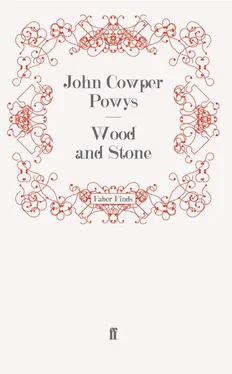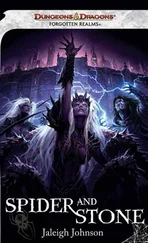The two young people found themselves looking one another straight in the eyes, until with a shuddering spasm that shook her whole frame, Gladys sank back into her seat, as if from the effect of a crushing blow received full upon the breast.
Luke passed on, following the bearers, with something like the ghost of a smile upon his drawn and contorted lips.
CHAPTER XXVIIVENNIE SELDOM
IT was not towards her mother’s house that Vennie directed her steps when she left the churchyard. She turned sharp to the west, and walked rapidly down the central street of the village into the square at the end of it.
Here she found an arena of busy and stirring confusion, dominated by hissing spouts of steam, hoarse whistlings from the “roundabout” engines, and occasional bursts of extravagant melody, as the circus-men made their musical experiments, pending the opening of the show.
Vennie’s intention, in crossing the square, was to pay a morning visit to Mr. Quincunx, whose absence from Andersen’s funeral had struck her mind as extraordinary and ominous. She feared that the recluse must be ill. Nothing less than illness, she thought, would have kept him away from such an event. She knew how closely he and the younger stone-carver were associated, and it was inconceivable that any insane jealousy of the dead could have held him at home. Of course it was possible that he had been compelled to go to work at Yeoborough as usual, but she did not think this likely.
It was, however, not only anxiety lest her mother’s queer friend should be ill that actuated her. She felt, — now that her ultimatum had been delivered, — that the sooner she entered the Catholic Church and plunged into her novitiate, the better it would be. When events had happened , Mrs. Seldom accepted them. It was during the days of uncertain waiting that her nerves broke down. Once the daughter were actually a postulant in a convent, she felt sure the mother would resign herself, and resume her normal life.
Valentia was a very independent and self-sufficient woman. With her favourite flowers and her favourite biographies of proconsular personages, the girl felt convinced she would be much less heart-broken than she imagined.
Her days in Nevilton being thus numbered, Vennie could not help giving way to a desire that had lately grown more and more definite within her, to have a bold and unhesitating interview with Mr. Quincunx. Perhaps even at this last hour something might be done to save Lacrima from her fate!
Passing along the outskirts of the circus, she could not resist pausing for a moment to observe the numerous groups of well-known village characters, whom curiosity had drawn to the spot.
She was amazed to catch sight of the redoubtable Mr. Wone, holding one of his younger children by the hand and surveying with extreme interest the setting up of a colossal framework of gilded and painted wood, destined to support certain boat-shaped swings. She felt a little indignant with the worthy man for not having been present at Andersen’s funeral, but the naive and childlike interest with which, with open mouth and eyes, he stood gaping at this glittering erection, soothed her anger into a smile. He really was a good sort of man, this poor Wone! She wondered vaguely whether he intended himself to indulge in the pastime of swinging in a boat-shaped swing or whirling round upon a wooden horse. She felt that if she could see him on one of these roundabouts, — especially if he retained that expression of guileless admiration, — she could really forgive him everything.
She caught a glimpse of two other figures whose interest in the proceedings appeared extremely vivid, no less persons than Mr. John Goring and his devoted henchman, Bert Leerd. These two were engaged in reading a glaring advertisement which depicted a young woman clad in astounding spangles dancing on a tight-rope, and it was difficult to say whether the farmer or the idiot was the more absorbed.
She was just turning away, when she heard herself called by name, and from amid a crowd of women clustering round one of Mr. Love’s bric-a-brac stalls, there came towards her, together, Mrs. Fringe and Mrs. Wotnot.
Vennie was extremely surprised to find these two ladies, — by no means particularly friendly as a rule, — thus joined in partnership of dissipation, but she supposed the influence of a circus, like the influence of religion, has a dissolvent effect upon human animosity. That these excellent women should have preferred the circus, however, to the rival entertainment in the churchyard, did strike her mind as extraordinary. She did not know that they had, as a matter of fact, “eaten their pot of honey” at the one, before proceeding, post-haste, to enjoy the other.
“May we walk with you, miss, a step?” supplicated Mrs. Fringe, as Vennie indicated her intention of moving on, as soon as their salutations were over.
“Thank you, you are very kind, Mrs. Fringe. Perhaps, — a little way, but I’m rather busy this morning.”
“Oh we shan’t trouble you long,” murmured Mrs. Wotnot, “It’s only, — well, Mrs. Fringe, here, had better speak.”
Thus it came about that Vennie began her advance up the Yeoborough road supported by the two housekeepers, the lean one on the left of her, and the fat one on the right of her.
“Will I tell her, or will you tell her?” murmured the plump lady sweetly, when they were clear of the village.
Mrs. Wotnot made a curious grimace and clasped and unclasped her hands.
“Better you; much, much better, that it should be you,” she remarked.
“But ’twas thy tale, dearie; ’twas thy tale and surprisin’ discoverin’s,” protested Mrs. Fringe.
“Those that knows aren’t always those that tells,” observed the other sententiously.
“But you do think it’s proper and right the young lady should know?” said Mr. Clavering’s housekeeper.
Mrs. Wotnot nodded. “If ’taint too shameful for her, ’tis best what she’d a’ ought to hear,” said the lean woman.
Vennie became conscious at this moment that whenever Mrs. Wotnot opened her mouth there issued thence a most unpleasant smell of brandy, and it flashed upon her that this was the explanation of the singular converging of these antipodal orbits. In the absence of her master, Mrs. Wotnot had evidently “taken to drink,” and it was doubtless out of her protracted intoxication that Mrs. Fringe had derived whatever scandalous piece of gossip it was that she was now so anxious to impart.
“I’ll tell ’ee, miss,” said Mrs. Fringe, “with no nonsense-fangles and no shilly-shally. I’ll tell ’ee straight out and sober, — same as our dear friend did tell it to me. ’Tis along of Miss Romer, — ye be to understand, wot is to be confirmed this same blessed day.
“The dear woman, here, was out a-gatherin’ laurel-leaves one fine evenin’, long o’ some weeks since, and who should she get wind of, in the bushes near-by, but Mr. Luke and Miss Gladys. I been my own self ere now, moon-daft on that there lovely young man, but Satan’s ways be Satan’s ways, and none shall report that I takes countenance of such goings on. Mrs. Wotnot here, she heerd every Jack word them sinful young things did say, — and shameful-awful their words were, God in Heaven do know!
“They were cursin’ one another, like to split, that night. She were cryin’ and fandanderin’ and he were laughin’ and chaffin’. ’Twas God’s terror to hear how they went on, with the holy bare sky over their shameless heads!”
“Tell the young lady quick and plain,” ejaculated Mrs. Wotnot at this point, clutching Vennie’s arm and arresting their advance.
“I am ’a tellin’ her,” retorted Mrs. Fringe, “I’m a tellin’ as fast as my besom can breathe. Don’t ’ee push a body so! The young lady ain’t in such a tantrum-hurry as all that.”
Читать дальше












